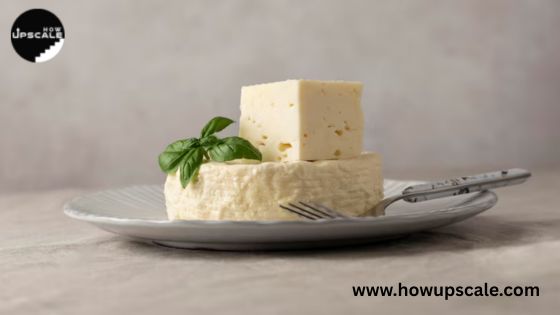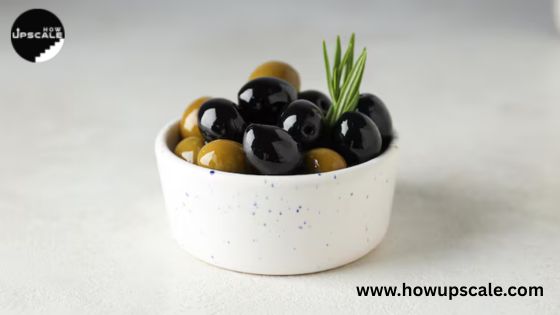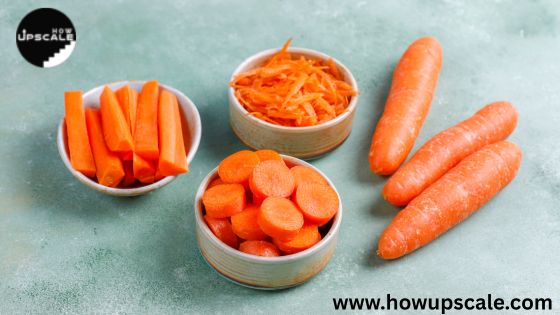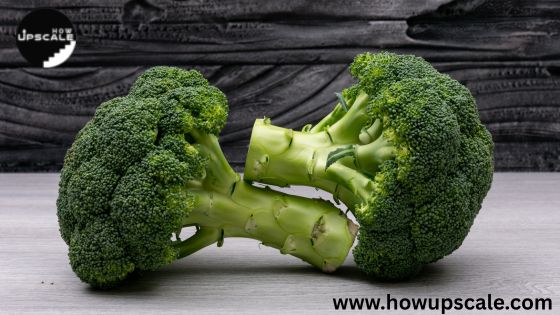Peanut Butter Benefits: Nutrition Facts and Health Benefits and More

Peanut butter is one of the most loved and versatile spreads around the world. Whether it’s spread on toast, mixed into smoothies, or used in snacks, it’s a delicious way to boost your health.
At How Upscale, we’ll explore the Peanut Butter Benefits, look at Peanut Butter Nutrition, talk about Peanut Butter Protein, understand Peanut Butter Calories, and answer common questions people have about this popular spread.
What is Peanut Butter?
Peanut butter is a spread made by grinding dry roasted peanuts into a paste. It often includes a small amount of salt, oil, or sweeteners. Natural peanut butter, however, only contains peanuts and maybe a bit of salt.
It’s packed with nutrients, making it both tasty and healthy.
Peanut Butter Nutrition Facts
Let’s break down the Peanut Butter Nutrition found in a typical 2-tablespoon (32g) serving:
- Calories: Around 190–200
- Protein: 7–8 grams
- Total Fat: 16 grams (mainly healthy fats)
- Carbohydrates: 6–7 grams
- Fiber: 2 grams
- Sugars: 1–2 grams (if unsweetened)
- Vitamins: Vitamin E, B3 (Niacin), B6
- Minerals: Magnesium, Iron, Potassium, Zinc
These facts show that Peanut Butter Nutrition is rich in energy, protein, healthy fats, and essential vitamins.
1. High in Peanut Butter Protein
Peanut Butter Protein content makes it a favorite for fitness lovers. Each serving contains around 7 to 8 grams of protein.
Protein helps build and repair muscle, supports metabolism, and keeps you full for longer. While it’s not a complete protein like meat or eggs, pairing peanut butter with whole grains (like bread or oats) can offer a complete protein source.
So, if you’re looking for a plant-based protein boost, Peanut Butter Protein is a great option.
2. Packed with Healthy Fats
One of the biggest Peanut Butter Benefits is its healthy fat content. Around 75% of the fat in peanut butter is unsaturated mainly monounsaturated and polyunsaturated fats.
These fats help:
- Lower bad cholesterol (LDL)
- Improve heart health
- Support brain function
- Reduce inflammation
So despite the fat content, it’s the good kind that your body needs.
3. Rich in Vitamins and Minerals
Among the many Peanut Butter Benefits, its richness in vitamins and minerals stands out. It’s a good source of:
Vitamin E: A powerful antioxidant that protects your cells
Niacin (B3): Helps convert food into energy
Magnesium: Supports muscle function and bone health
Zinc: Boosts immunity and wound healing
Iron: Helps in oxygen transportation
This makes it a mini-nutrient powerhouse in just a spoonful.
4. Peanut Butter Calories and Energy
Let’s talk about Peanut Butter Calories. A 2-tablespoon serving has about 190–200 calories. While this may sound like a lot, these are nutrient-dense calories.
The fats and proteins in peanut butter help keep you full, which may reduce overall food intake and help with weight control. So, as long as you don’t overeat it, Peanut Butter Calories can be part of a balanced diet.
5. Supports Weight Management
Even though peanut butter is high in calories, one of the surprising Peanut Butter Benefits is its ability to help manage weight.
Why? Because it keeps you full for longer. The combination of Peanut Butter Protein, fiber, and fat makes it very satisfying. People who include it in meals or snacks are less likely to overeat later.
Of course, portion control is key. Stick to about 2 tablespoons per serving.
6. Heart Health Benefits
Multiple studies show that nut and peanut butter consumption is linked with reduced heart disease risk. The healthy fats, particularly monounsaturated fats, help reduce bad cholesterol.
The Peanut Butter Nutrition profile includes antioxidants and potassium, which also support a healthy heart. Choosing natural, unsweetened peanut butter without hydrogenated oils is best for heart health.
7. Boosts Energy
Feeling low on energy? The high Peanut Butter Calories provide a quick and long-lasting energy source.
This is especially useful for:
- Athletes
- Busy professionals
- Kids who need energy throughout the day
Spread some peanut butter on toast, or stir it into a smoothie for an instant energy lift.
8. May Help Manage Blood Sugar
Peanut butter has a low glycemic index. This means it doesn’t cause a quick spike in blood sugar levels. The protein, fat, and fiber slow down digestion and sugar absorption.
That’s why it’s considered good for people with diabetes or those trying to control blood sugar.
Another great Peanut Butter Benefit!
9. Antioxidant Support
Peanut butter contains antioxidants like resveratrol and p-coumaric acid. These compounds help:
- Protect your cells from damage
- Reduce inflammation
- Slow signs of aging
Adding peanut butter to your diet can support your overall health at the cellular level.
10. Easy to Add to Any Diet
Peanut butter is incredibly versatile. You can:
- Spread it on bread
- Add it to smoothies
- Mix it with oats
- Use it in baking
- Eat it straight from the jar (we won’t judge!)
Because of this, getting the Peanut Butter Benefits daily is super easy.
11. Plant-Based Source of Peanut Butter Protein
Vegetarians and vegans often look for plant-based protein sources. Peanut Butter Protein fills that gap. It’s tasty, natural, and easily added to various plant-based meals.
Combine it with bananas, oats, or plant milk, and you’ve got a balanced, protein-rich snack.
12. Supports Muscle Growth
After a workout, your body needs protein and energy. A spoonful of peanut butter provides both.
The Peanut Butter Protein helps repair muscle, and the healthy fats give energy to recover quickly.
Athletes and gym-goers love peanut butter for this very reason.
13. Helps with Brain Function
Peanut butter contains healthy fats and vitamin E, both essential for brain health. They improve memory, focus, and even help prevent age-related cognitive decline.
This is another reason why the Peanut Butter Benefits go beyond just fitness—they support your mind, too.
14. Budget-Friendly and Long Shelf Life
Compared to other superfoods, peanut butter is affordable and easily available. It also lasts for a long time, even without refrigeration (if sealed well).
That’s why it’s a smart, budget-friendly health food.
15. Kid-Friendly Superfood
Kids love peanut butter. And parents love the fact that it’s healthy.
It gives growing children the protein, calories, and nutrients they need. Just be mindful of added sugars or hydrogenated oils in some brands.
16. Great for Weight Gain (When Needed)
For people looking to gain weight in a healthy way, Peanut Butter Calories are very helpful.
Just a couple of spoonfuls a day can add hundreds of calories in a nutritious way. Add it to shakes, toast, or snacks for healthy weight gain.
17. Immune Support
Zinc, iron, and vitamin B6 in peanut butter support the immune system. So if you’re looking for a tasty way to boost immunity, the Peanut Butter Nutrition has you covered.
Why You Should Include Peanut Butter in Your Diet
Here’s a quick recap of the top Peanut Butter Benefits:
- High in Peanut Butter Protein
- Packed with healthy fats
- Rich in Peanut Butter Nutrition like vitamins and minerals
- Good source of Peanut Butter Calories for energy
- Helps with weight management and muscle recovery
- Supports heart, brain, and immune health
- Budget-friendly and easy to use
- Peanut butter truly earns its place as a nutritious and tasty superfood.
About Peanut Butter Benefits
1. Is peanut butter good for weight loss?
Yes, in moderation. Thanks to its protein and healthy fat content, peanut butter keeps you full and can help prevent overeating.
2. How much peanut butter is safe to eat daily?
2 tablespoons per day is considered a healthy amount for most people. That provides all the Peanut Butter Benefits without too many Peanut Butter Calories.
3. Can people with diabetes eat peanut butter?
Yes. Peanut butter has a low glycemic index and helps control blood sugar, thanks to its protein, fat, and fiber content.
4. Is peanut butter a complete protein?
No, peanut butter is not a complete protein on its own. But when paired with whole grains (like whole wheat bread or oats), it becomes a complete source of Peanut Butter Protein.
5. What type of peanut butter is the healthiest?
Natural peanut butter made with only peanuts (and maybe salt) is the healthiest. Avoid versions with added sugars and hydrogenated oils.
Peanut butter is more than just a spread it’s a source of health, energy, and satisfaction. From its rich Peanut Butter Nutrition to its muscle-building Peanut Butter Protein and energy-boosting Peanut Butter Calories, it’s a smart choice for almost every diet.
So go ahead, enjoy the delicious Peanut Butter Benefits in your breakfast, snack, or post-workout meal and give your body the tasty nutrition it deserves.










